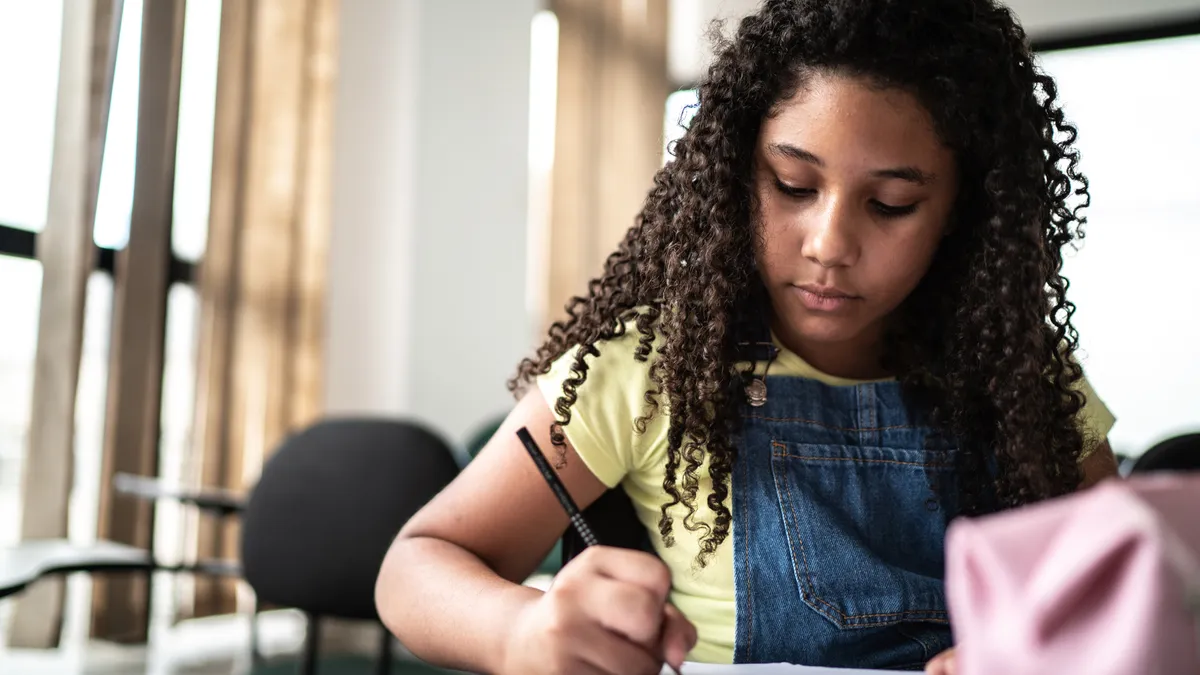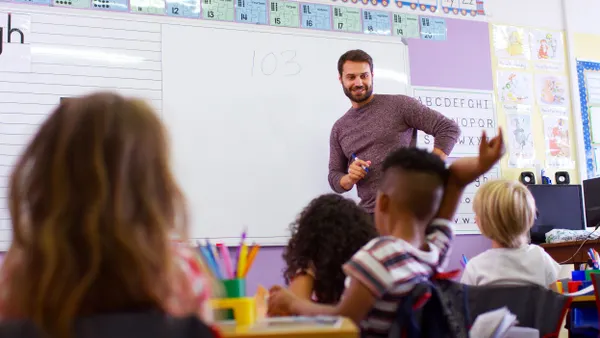Dive Brief:
-
Projects such as portfolios can help educators assess how well their students have absorbed material and subjects beyond a traditional assessment, allowing learners to show a deeper level of understanding.
-
Portfolios can also highlight a depth of understanding and skills that illustrate students' ability to be self-motivated and college-ready, said Linda Darling-Hammond, president and CEO of the Learning Policy Institute, a research nonprofit that aims to improve education policy and practice.
-
“You can be your own engine of self-improvement rather than others telling you,” Darling-Hammond said. “So what is represented is authentic work, and demonstrating you can explain a solution or come to a judgment of some sort and be able to revise the work to meet a standard.”
Dive Insight:
Darling-Hammond, a professor emerita at Stanford University and president of the California State Board of Education, said portfolios can be applied to any subject, including across disciplines, with students incorporating a math model, a scientific representation, art, a world language and more. She noted that giving students a rubric — alongside the opportunity to develop their project to meet those standards — can help engage them more deeply in the work.
“It’s now your work and your own thinking, and you choose the tools,” she said. “It’s very enlivening for students.”
Key to portfolios is also the ability to revise and explore, whether students are writing reports or essays crafted in an English language arts class or creating science entries reflecting investigations and experiments where they continue to refine their work. That approach is also typically applied in the working world, where employees work together on projects, developing ideas and drafts and then honing them through multiple rounds of revisions to produce their best effort.
To Darling-Hammond, that ability can take them from school to the next level — wherever they may go.
“Students are learning the kind of work that’s in the workplace and college, where you take up a project, find resources, analyze, tackle difficult problems, come to a reasoned disciplined conclusion, and write, talk, and present it much like a dissertation,” she said. “That creates a depth of understanding and develops a level of skills that shows they are college-ready.”






 Dive Awards
Dive Awards






